2019-2020
Carleton University
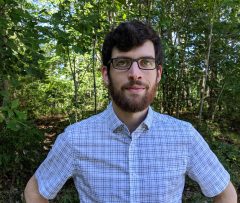 Brendan Kent, MA Music and Culture, Carleton University
Brendan Kent, MA Music and Culture, Carleton University
Supervisor: Dr. Jesse Stewart
My research interests are in improvisation and performance studies. Through the READi program, I hope to gain a greater understanding of how to develop and use Adaptive Use Musical Instruments in order to make music performance more accessible to people of all backgrounds and levels of musical knowledge.
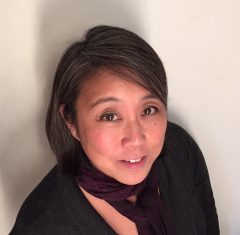 Carla Ayukawa, MDes, School of Industrial Design, Carleton University
Carla Ayukawa, MDes, School of Industrial Design, Carleton University
Supervisor: Prof. Chantal Trudel
My MDes research interest includes the integration of Universal and Inclusive Design principals into the design process for Environmental and Experiential Graphic Design. I look forward to extending the co-design and collaborative methods learned and applied in the READi program in order to create a design process framework and convivial environment whereby everyone contributes to develop truly remarkable accessible and inclusive products and services. I anticipate that the network developed through READi will also support my goal of ethnographic research for design innovation in the disabled community.
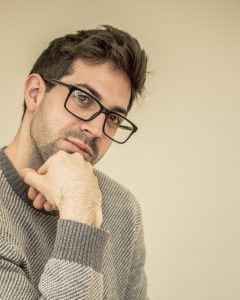 Daren Dzumhur, MDes, School of Industrial Design, Carleton University
Daren Dzumhur, MDes, School of Industrial Design, Carleton University
Supervisor: Prof. Chantal Trudel
I intend to research how to improve the user interface and experience of assistive devices; specifically pertaining to ambulatory devices intended for long term use. I’m looking forward to READi and the new skillset that comes alongside learning how design and accessibility can lead to improved user experiences and a more inclusive and accessible future.
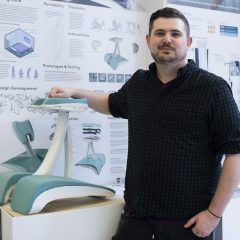 Dawson Clark, MDes, School of Industrial Design, Carleton University
Dawson Clark, MDes, School of Industrial Design, Carleton University
Supervisor: Prof. Chantal Trudel
I’m looking forward to READi as it encompasses a holistic perspective on the nature of accessibility and designing for an accessible future. My research is based around the implementation of transformation design principles within the realm of long term care.
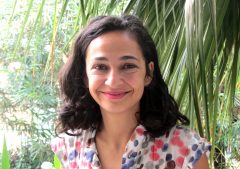 Federica De Sisto, PhD, History, Carleton University
Federica De Sisto, PhD, History, Carleton University
Supervisor: Dr. Dominique Marshall and Dr. Lois Frankel
My research focuses on connecting migration studies, disability and social welfare and aims at exploring barriers to social inclusion for migrants with disabilities. It also looks at the role of the social welfare system in facilitating this inclusion.
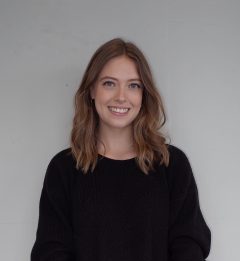 Kayla Daigle, MDes, School of Industrial Design, Carleton University
Kayla Daigle, MDes, School of Industrial Design, Carleton University
Supervisor: Prof. Chantal Trudel
My intended area of research is to look into the ways our environments can shape levels of communication and interaction. Specifically looking into how ‘invisible disabilities’ affect levels of interaction and how to make improvements to workspace environments to accommodate this population. I look forward to learning more about accessibility and how design can improve user experiences
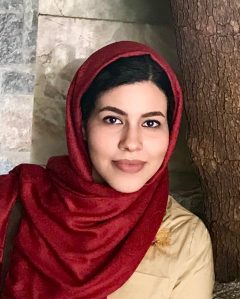
Mahdokht Golmohammadishouraki, MASc, Mechanical Engineering, Carleton University
Supervisor: Dr. Mojtaba Ahmadi
My research is focused on rehabilitation robots. The primary purpose of it is designing an assistive robot helping stroke patients to do more physiotherapy’s exercises by themselves to decrease their recovery duration
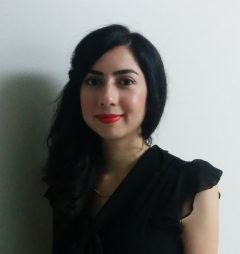 Neda Fayazi, PhD, Information Technology, Carleton University
Neda Fayazi, PhD, Information Technology, Carleton University
Supervisor: Dr. Lois Frankel
My research focuses on the design of emotionally engaging and meaningful assistive products. It explores how to create an emotional attachment with wearable technology and to design inclusive wearables that not only alleviate the stigma attached to the devices, but also lead to the creation of long-term product attachment. Through the READi program, I look forward to combining theory and practice in accessibility and collaborating within an interdisciplinary team.
 Samantha Schneider, MDes, School of Industrial Design, Carleton University
Samantha Schneider, MDes, School of Industrial Design, Carleton University
Supervisor: Dr. Lois Frankel
Through my research, I hope to explore how emotional and playful design have a role in how aging populations with increasing accessibility needs experience designed artifacts. The READi program will help engage my research more directly with accessibility needs and perspectives; and make connections between these perspectives and the overall user experience.
Queen’s University
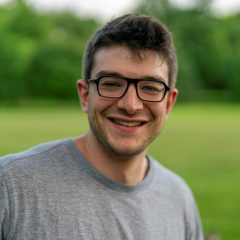 Gabriele Cimolino, Masters in Computing, Queen’s University
Gabriele Cimolino, Masters in Computing, Queen’s University
Supervisor: Dr. Nicholas Graham
I am adapting exergames, video games that require exercise to play, to make them accessible to people with spinal cord injury
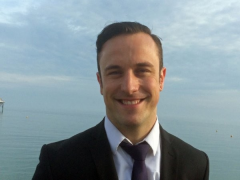 Roderick Spencer, Masters in Mechanical and Materials Engineering, Queen’s University
Roderick Spencer, Masters in Mechanical and Materials Engineering, Queen’s University
Supervisor: Dr. Claire Davies
As a member of BDAT Lab at Queen’s university, my goal is to develop assistive technologies that are widely accessible and end-user focused. My current research is focusing on ways that EEG can be translated into an audio signal, to allow for real time feedback.
University of Ottawa
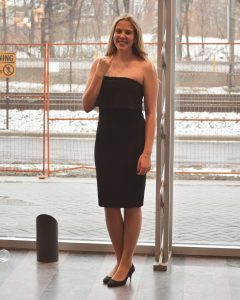 Kelly Brannen, Masters in Biomedical Engineering, University of Ottawa
Kelly Brannen, Masters in Biomedical Engineering, University of Ottawa
Supervisors: Dr. Ed Lemaire and Dr. Natalie Baddour
My research interest is in powered prosthetic devices. The READi program will allow me to investigate accessibility issues with an interdisciplinary approach by working with students of various research interests. I am excited to work with the other READi members and learn about the various sides of accessibility.
 Pascale Juneau, Masters in Biomedical Engineering, University of Ottawa
Pascale Juneau, Masters in Biomedical Engineering, University of Ottawa
Supervisors: Dr. Ed Lemaire and Dr. Natalie Baddour
I am interested in researching how technology can be used to improve recovery. I’m looking forward to learning more about how to solve real-world accessibility issues in creative and innovative ways.
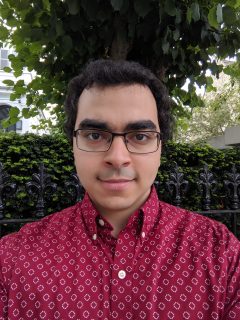 Michael Botros, Masters in Biomedical Engineering, University of Ottawa
Michael Botros, Masters in Biomedical Engineering, University of Ottawa
Supervisors: Dr. Ed Lemaire and Dr. Natalie Baddour
Many people have undergone circumstances out of their control that led to amputation. In order to give these people a second chance, my aim is to push the boundaries of rehabilitation engineering. Over the course of my master’s degree, I will be contributing to the development of a full lower-limb powered prosthesis for hip-level amputees. I believe that the READi program will provide me with a holistic view of accessibility and knowledge in entrepreneurship.
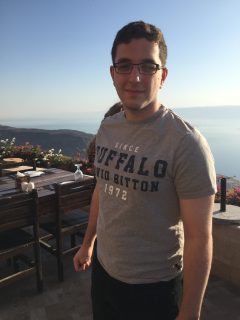 Yousef Bader, Masters in Biomedical Engineering, University of Ottawa
Yousef Bader, Masters in Biomedical Engineering, University of Ottawa
Supervisors: Dr. Ed Lemaire and Dr. Natalie Baddour
My research interest is in creating powered prosthetics and assistive devices that can make daily life easier for users. Through the READi program, I hope to learn new skills to use in my research, learn to look at problems with new perspectives, and to work in inter-disciplinary teams to solve complex problems.